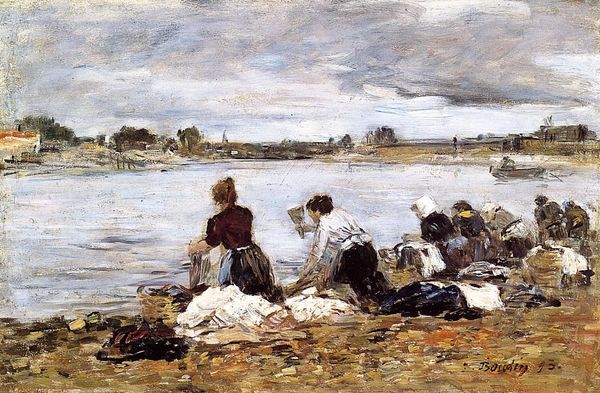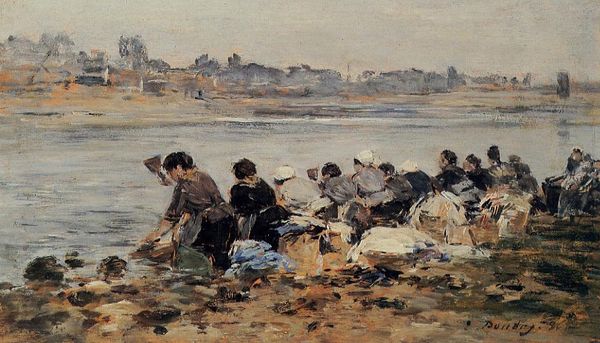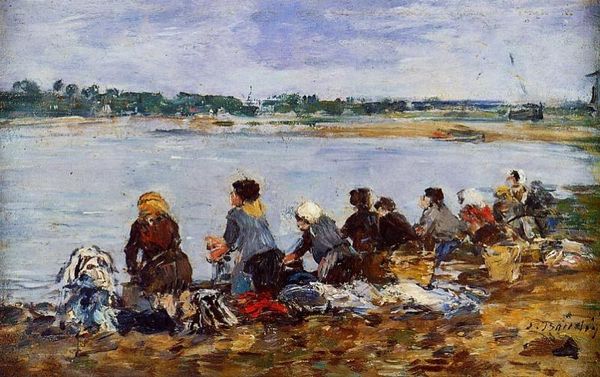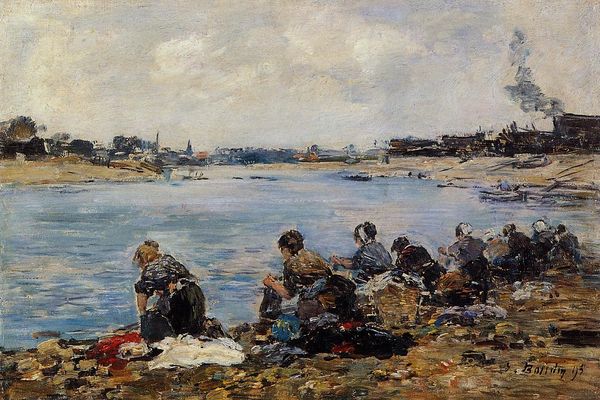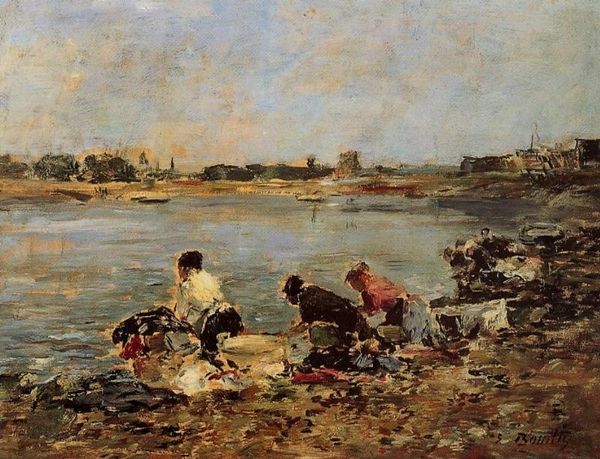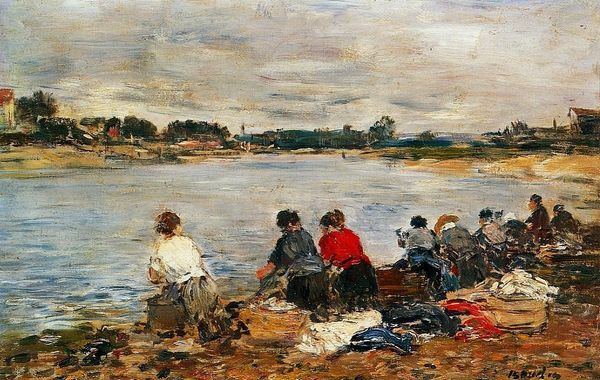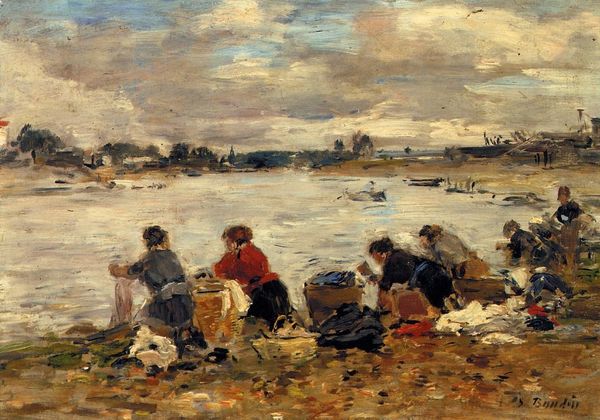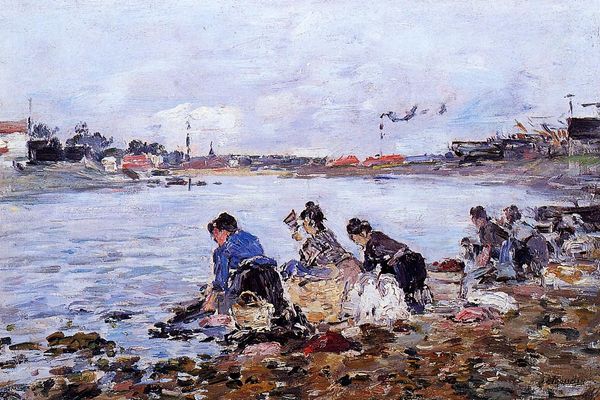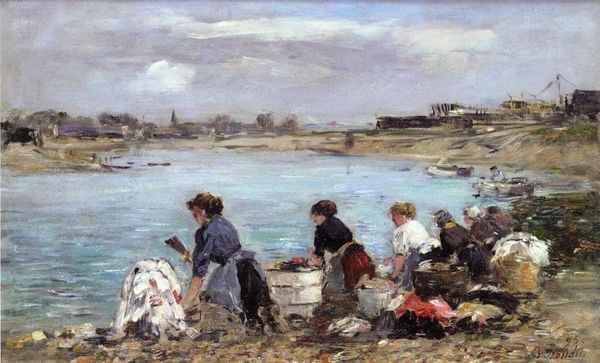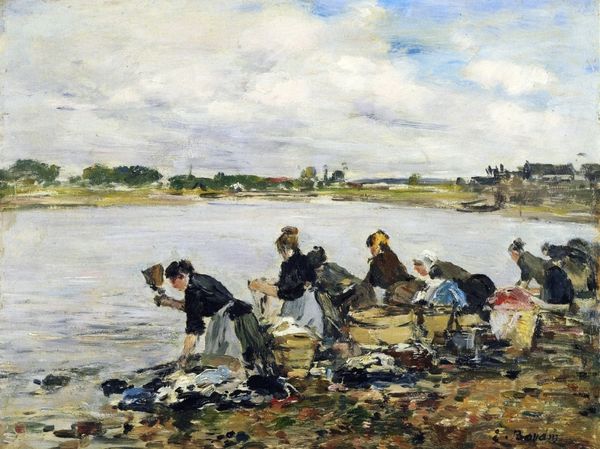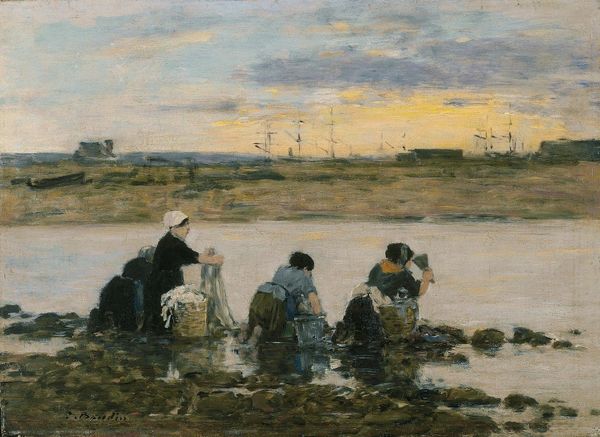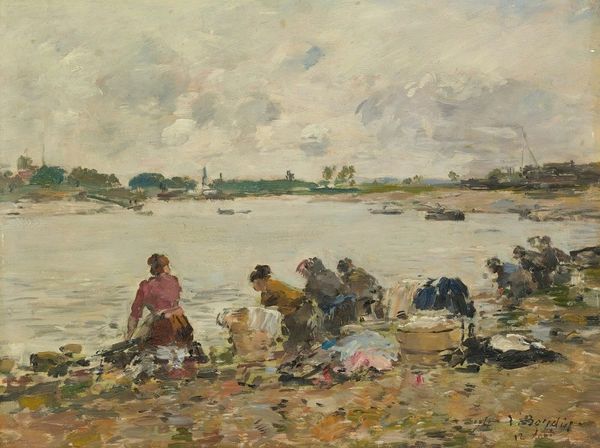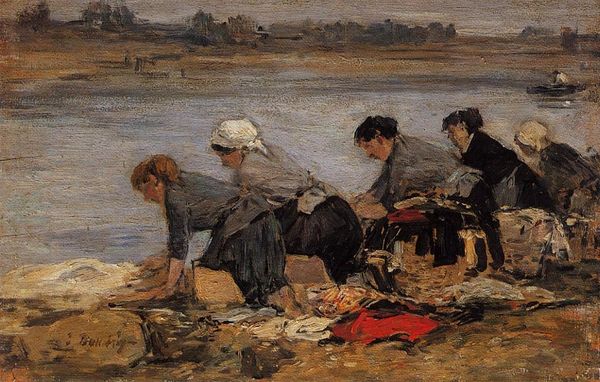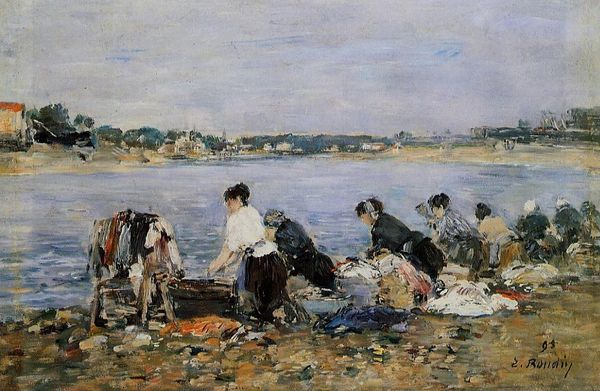
painting, plein-air, oil-paint
#
painting
#
impressionism
#
plein-air
#
oil-paint
#
landscape
#
river
#
impressionist landscape
#
oil painting
#
water
#
genre-painting
Copyright: Public domain
Editor: Ah, it looks like we're about to delve into Eugène Boudin's world! Just look at this scene. It evokes a sort of serene yet melancholic feeling. It makes me think of laundry days as a child, when the house felt transformed by all the linens hanging about. Curator: Indeed. We're looking at "Laundresses on the Banks of the Touques." Boudin was a key figure in the Impressionist movement. The scene presented depicts a group of women doing laundry on the banks of the Touques river, a familiar genre subject that enabled a depiction of everyday life within rapidly industrializing coastal France. The artwork also draws from traditions that present working class individuals engaged in their labor and that make use of the “en plein air” style for which Boudin was well-known. Editor: Right. It's also quite clear that it’s a real, lived scene he’s painted, not some idealized pastoral fantasy. You can practically feel the dampness of the river air. And just look how the figures are almost absorbed by the landscape! There’s definitely some symbolic weight in these ordinary people depicted amid such open atmospheric landscape, yes? Curator: Exactly! In representing these working-class women, we are encouraged to think about the lives of women in 19th-century France—their social roles, the repetitive and physically demanding labor involved in laundry work, the ways their existence depended upon close-knit communal groups for their work and livelihoods. Editor: You see it. And it isn't just visual information he offers us, right? The brushstrokes have a looseness that practically vibrates, and they make me think of the endless labor of washing and rinsing—it is so physical it even leaves traces of this physical act behind in the swirls of paint he's left behind. And how great is it that those subtle brushstrokes of color capture not just light and atmosphere but almost time itself! Curator: It is easy to see Boudin as an important forerunner of Impressionism because of his attention to ephemeral visual conditions like this. When viewed from our current perspectives, we can also read “Laundresses on the Banks of the Touques” as encouraging viewers to contemplate how these working women lived and the impact of such conditions on their place within the rapidly modernizing world. Editor: Looking closer now, I think that Boudin has given us this small slice of the everyday so that we can reflect more deeply on the conditions that create such an environment and experience, which really emphasizes the human story in his compositions. It has the effect of drawing one in, and now I want to experience more and find other facets within this painting, which seems even better after this dialogue! Curator: Absolutely. His focus on capturing fleeting moments gives rise to the more substantive material concerns visible across art history when reflecting on labor, gender, and place.
Comments
No comments
Be the first to comment and join the conversation on the ultimate creative platform.
